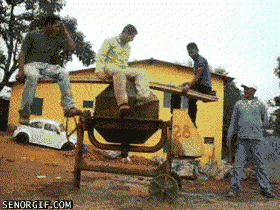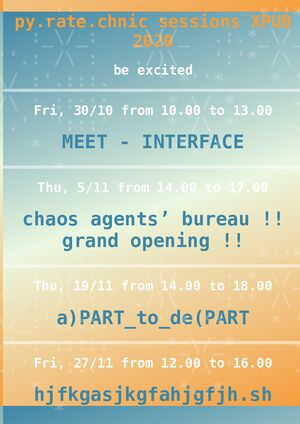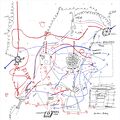Category:Py.rate.chnic sessions: Difference between revisions
Andre Castro (talk | contribs) |
|||
| (124 intermediate revisions by 9 users not shown) | |||
| Line 1: | Line 1: | ||
http://4.bp.blogspot.com/-iu9HnWQ8VJc/VCoKyH-iySI/AAAAAAAAKDM/6vqAPrFLfRI/s1600/funny-gifs-diy-ride-gone-wrong.gif | |||
https://upload.wikimedia.org/wikipedia/commons/c/cc/Lawncare.gif | |||
__NOTOC__ | |||
==General description== | ==General description== | ||
''.py.rate.chnic'' are a series of | Under the name of ''.py.rate.chnic sessions'', the second-year students from the Experimental Publishing Master program invite you to participate in a series of hands-on workshops, related to the topics of their graduation projects. Each workshop offers the participants an opportunity to engage with the students' research by partaking in their processes, experiments, and discussions. | ||
''.py.rate.chnic sessions'' are a series of collective work-sessions organized by the XPUB second-year's students and attended by first-years. | |||
Each sessions is conducted by two second-years who organize the session around a topic or format related to their graduation projects. The session will function as an opportunity to develop, experiment, test and discuss their processes collectively. | |||
==Timeline== | |||
We will meet each other on the following days: | |||
=== Monday 21st of Sept === | |||
{{ ONLINE }} | |||
.py.rate.''what''? | |||
10:00 - 12:00 warming up | |||
12:00 - 13:00 break | |||
13:00 - 14:30 format fantasies, duo-forming, planning | |||
Hotline location: https://hotline.xpub.nl/py.rate.chnic | |||
Pad of the day: https://pad.xpub.nl/p/py.rate.chnic | |||
=== Tuesday 13th of Oct === | |||
{{ IRL }} | |||
11:00 - 13:00 Discuss idea/plans/directions + picking dates (20 min/group) | |||
13:00 - 14:00 break | |||
14:00 - 16:00 Py.rate.chnic announcement (collective poster making) | |||
Hotline location: https://hotline.xpub.nl/py.rate.chnic | |||
Pad of the day: https://pad.xpub.nl/p/py.rate.chnic-2020-gathering-2 | |||
=== Tuesday 27th of Oct === | |||
{{ IRL }} | |||
10:00 - 13:00 Preparations & Feedback | |||
Hotline location: https://hotline.xpub.nl/py.rate.chnic | |||
=== Tuesday 10th of Nov === | |||
{{ IRL }} | |||
10:00 - 13:00 Preparation & How did it go? | |||
Hotline location: https://hotline.xpub.nl/py.rate.chnic | |||
Pad of the day: https://pad.xpub.nl/p/py.rate.chnic-10-11-2020 | |||
=== Monday 23rd of Nov === | |||
{{ ONLINE }} | |||
10:00 - 13:00 Preparation / reflection | |||
Hotline: https://hotline.xpub.nl/py.rate.chnic | |||
Pad of the day: https://pad.xpub.nl/p/py.rate.chnic-23-11-2020 | |||
==Sessions timeline== | |||
[[File:Py.rate.chnic-poster.jpg|thumb|right|Py.rate.chnic sessions 2020, collectively designed poster by XPUB2]] | |||
== | ===Session 1=== | ||
Title: [[:Category:Py.rate.chnic_sessions/meet_interface|MEET - INTERFACE]] | |||
Date: Friday 30 October (10:00 - 13:00) | |||
Who: Avital & Max | |||
===Session 2=== | |||
Title: [[:Category:Chaos_agent's_bureau_!!|chaos agent's bureau !!]] | |||
Date: Thursday 5 November (14:00 - 17:00) | |||
Who: anna, damla, clara | |||
===Session 3=== | |||
Title: [[A)PART_to_de(PART|a)PART_to_de_(PART]] | |||
Date: Thursday 19 November (14:00 - 18:00) | |||
Who: ioana, mark, tisa | |||
===Session 4=== | |||
--- | Title: [[Calendars:Networked_Media_Calendar/Networked_Media_Calendar/14-01-2021_-Event_1|hjfkgasjkgfahjgfjh.sh]] | ||
Date: Friday 27 November (12:00 - 16:00) | |||
Who: Sandra & Mika | |||
==.py.rate.chnic planning document== | |||
To prepare the sessions we will work on a small planning document. | |||
Making this document will be helpful for announcing the .py.rate.chnic sessions to XPUB1. | |||
This document includes: | |||
title: | |||
img: | |||
format: | |||
short description: | |||
what will happen? [one line!] | |||
why (relevance)? [one line!] | |||
outcome (what will be goal of the session)? [one line!] | |||
who (is organising the session): | |||
when: | |||
where: | |||
maximum amount of participants: | |||
preparations (what do participants need to prepare before joining the session?): | |||
===Formats=== | |||
The format of a session can be anything! | |||
A few examples: | |||
* '''hack-a-thon''': where you ask the participants to explore a subject, by making prototypes together (open-ended, technical, DIY) | |||
* '''workshop''': departing from a specific question / technology / prototype / ... inviting others to engage with it in a ''specific'' way (methodology, how-to, tools) | |||
* '''(book) sprint''': where the group writes collaboratively a manual / research text / book / and produce a website / pdf /... (collective practices, workflows, reading/writing) | |||
* '''test session''': where a given procedure / methods is tested on the participants and at the end feedback is given (feedback, testing the limits) | |||
* ... or '''any other form of activation''' :--) | |||
===Preparations=== | |||
These could include for example: a text, software installations, material to bring, ... | |||
Using a preparation list is useful, as it will make it easier to start quickly, be a bit productive (installing things often eat up a lot of time!) and have more fun. | |||
'''TIP''': Do not overload the participants with too many preparations. | |||
=Previous Years= | |||
* [[Py.rate.chnic sessions/2018-2019|2018-2019]] | |||
* [[Py.rate.chnic sessions/2019-2020|2019-2020]] | |||
[[Category:XPUB]] | [[Category:XPUB]] | ||
Latest revision as of 23:04, 14 June 2021


General description
Under the name of .py.rate.chnic sessions, the second-year students from the Experimental Publishing Master program invite you to participate in a series of hands-on workshops, related to the topics of their graduation projects. Each workshop offers the participants an opportunity to engage with the students' research by partaking in their processes, experiments, and discussions.
.py.rate.chnic sessions are a series of collective work-sessions organized by the XPUB second-year's students and attended by first-years.
Each sessions is conducted by two second-years who organize the session around a topic or format related to their graduation projects. The session will function as an opportunity to develop, experiment, test and discuss their processes collectively.
Timeline
We will meet each other on the following days:
Monday 21st of Sept
ONLINE
.py.rate.what?
10:00 - 12:00 warming up
12:00 - 13:00 break
13:00 - 14:30 format fantasies, duo-forming, planning
Hotline location: https://hotline.xpub.nl/py.rate.chnic
Pad of the day: https://pad.xpub.nl/p/py.rate.chnic
Tuesday 13th of Oct
IRL
11:00 - 13:00 Discuss idea/plans/directions + picking dates (20 min/group)
13:00 - 14:00 break
14:00 - 16:00 Py.rate.chnic announcement (collective poster making)
Hotline location: https://hotline.xpub.nl/py.rate.chnic
Pad of the day: https://pad.xpub.nl/p/py.rate.chnic-2020-gathering-2
Tuesday 27th of Oct
IRL
10:00 - 13:00 Preparations & Feedback
Hotline location: https://hotline.xpub.nl/py.rate.chnic
Tuesday 10th of Nov
IRL
10:00 - 13:00 Preparation & How did it go?
Hotline location: https://hotline.xpub.nl/py.rate.chnic
Pad of the day: https://pad.xpub.nl/p/py.rate.chnic-10-11-2020
Monday 23rd of Nov
ONLINE
10:00 - 13:00 Preparation / reflection
Hotline: https://hotline.xpub.nl/py.rate.chnic
Pad of the day: https://pad.xpub.nl/p/py.rate.chnic-23-11-2020
Sessions timeline
Session 1
Title: MEET - INTERFACE
Date: Friday 30 October (10:00 - 13:00)
Who: Avital & Max
Session 2
Title: chaos agent's bureau !!
Date: Thursday 5 November (14:00 - 17:00)
Who: anna, damla, clara
Session 3
Title: a)PART_to_de_(PART
Date: Thursday 19 November (14:00 - 18:00)
Who: ioana, mark, tisa
Session 4
Title: hjfkgasjkgfahjgfjh.sh
Date: Friday 27 November (12:00 - 16:00)
Who: Sandra & Mika
.py.rate.chnic planning document
To prepare the sessions we will work on a small planning document.
Making this document will be helpful for announcing the .py.rate.chnic sessions to XPUB1.
This document includes:
title: img: format: short description: what will happen? [one line!] why (relevance)? [one line!] outcome (what will be goal of the session)? [one line!] who (is organising the session): when: where: maximum amount of participants: preparations (what do participants need to prepare before joining the session?):
Formats
The format of a session can be anything!
A few examples:
- hack-a-thon: where you ask the participants to explore a subject, by making prototypes together (open-ended, technical, DIY)
- workshop: departing from a specific question / technology / prototype / ... inviting others to engage with it in a specific way (methodology, how-to, tools)
- (book) sprint: where the group writes collaboratively a manual / research text / book / and produce a website / pdf /... (collective practices, workflows, reading/writing)
- test session: where a given procedure / methods is tested on the participants and at the end feedback is given (feedback, testing the limits)
- ... or any other form of activation :--)
Preparations
These could include for example: a text, software installations, material to bring, ...
Using a preparation list is useful, as it will make it easier to start quickly, be a bit productive (installing things often eat up a lot of time!) and have more fun.
TIP: Do not overload the participants with too many preparations.
Previous Years
Subcategories
This category has the following 8 subcategories, out of 8 total.
Pages in category "Py.rate.chnic sessions"
The following 8 pages are in this category, out of 8 total.
N
Media in category "Py.rate.chnic sessions"
The following 71 files are in this category, out of 71 total.
- 508A5671.jpg 4,480 × 2,780; 660 KB
- 508A5706.JPG 6,720 × 4,480; 7.92 MB
- 508A5713.JPG 6,720 × 4,480; 9.17 MB
- 508A5718.JPG 6,720 × 4,480; 6.52 MB
- 508A5749.JPG 6,720 × 4,480; 8.74 MB
- Ezgif.com-gif-maker.gif 1,200 × 900; 3.15 MB
- Hjfkgasjkgfahjgfjh-invitation.png 1,334 × 633; 158 KB
- Hjfkgasjkgfahjgfjh-xargs.png 1,334 × 661; 188 KB
- IMG 0236 4.JPG 4,032 × 3,024; 2.22 MB
- IMG 20200127 181700.jpg 4,160 × 3,120; 2.13 MB
- IMG 20200127 182026.jpg 4,160 × 3,120; 2.59 MB
- IMG 20200127 183704.jpg 4,160 × 3,120; 2.37 MB
- IMG 20200127 183716.jpg 4,160 × 3,120; 1.92 MB
- IMG 20200127 194520.jpg 4,160 × 3,120; 2.43 MB
- IMG 20200127 202018.jpg 4,160 × 3,120; 1.81 MB
- IMG 20200203 175656.jpg 3,120 × 4,160; 2.55 MB
- IMG 20200203 175708.jpg 3,120 × 4,160; 2.91 MB
- IMG 20200203 183541.jpg 4,160 × 3,120; 2.98 MB
- IMG 20200203 190108.jpg 3,120 × 4,160; 2.38 MB
- IMG 20200203 190113.jpg 3,120 × 4,160; 1.84 MB
- IMG 20200210 175847.jpg 4,160 × 3,120; 2.97 MB
- IMG 20200210 180247.jpg 4,160 × 3,120; 3.04 MB
- IMG 20200302 173737.jpg 3,120 × 4,160; 2.81 MB
- IMG 20200302 175637.jpg 800 × 600; 133 KB
- IMG 20200302 183649.jpg 4,160 × 3,120; 3.29 MB
- IMG 20200302 184022.jpg 4,160 × 3,120; 3.7 MB
- IMG 20200302 184037.jpg 4,160 × 3,120; 2.63 MB
- IMG 20200302 184134.jpg 3,120 × 4,160; 2.41 MB
- IMG 20200302 184204.jpg 3,120 × 4,160; 2.82 MB
- IMG 20200302 184232.jpg 3,120 × 4,160; 2.7 MB
- IMG 20200302 190352.jpg 4,160 × 3,120; 1.95 MB
- IMG 20200302 190545.jpg 4,160 × 3,120; 2.57 MB
- Introduction.gif 500 × 281; 30.9 MB
- Machine.gif 500 × 281; 31.6 MB
- PyRateChnic 01.jpg 5,760 × 3,840; 942 KB
- PyRateChnic 02.jpg 5,760 × 3,840; 1.01 MB
- PyRateChnic 03.jpg 5,760 × 3,840; 1.99 MB
- PyRateChnic 04.jpg 5,760 × 3,840; 1.58 MB
- PyRateChnic 05.jpg 5,760 × 3,840; 1.9 MB
- PyRateChnic 06.jpg 3,840 × 5,760; 1.13 MB
- PyRateChnic 07.jpg 5,760 × 3,840; 1.54 MB
- PyRateChnic 08.jpg 3,840 × 5,760; 1.26 MB
- PyRateChnic 09.jpg 3,840 × 5,760; 1.13 MB
- PyRateChnic 10.jpg 3,840 × 5,760; 1.05 MB
- PyRateChnic 11.jpg 3,840 × 5,760; 836 KB
- PyRateChnic 13.jpg 5,282 × 3,521; 1.27 MB
- PyRateChnic 15.jpg 5,760 × 3,840; 1.69 MB
- PyRateChnic 16.jpg 5,760 × 3,840; 1.59 MB
- PyRateChnic 17.jpg 5,760 × 3,840; 1.79 MB
- PyRateChnic 18.jpg 5,760 × 3,840; 1.98 MB
- PyRateChnic 19.jpg 5,760 × 3,840; 1.62 MB
- PyRateChnic 22.jpg 5,760 × 3,840; 1.1 MB
- PyRateChnic 23.jpg 5,519 × 3,679; 1.27 MB
- PyRateChnic 24.jpg 5,760 × 3,840; 1.08 MB
- PyRateChnic 25.jpg 5,760 × 3,840; 1.54 MB
- PyRateChnic 26.jpg 5,760 × 3,840; 1.39 MB
- PyRateChnic 27.jpg 5,760 × 3,840; 1.49 MB
- PyRateChnic 28.jpg 5,760 × 3,840; 1.23 MB
- PyRateChnic 29.jpg 3,863 × 2,575; 672 KB
- PYRATECHNICH 1.jpg 2,480 × 3,508; 897 KB
- PYRATECHNICH 2.jpg 2,362 × 1,670; 860 KB
- PYRATECHNICH 3.png 2,848 × 1,574; 765 KB
- PYRATECHNICH 4.jpg 2,953 × 2,953; 770 KB
- Scan-0.jpg 1,190 × 841; 260 KB
- Scan-1.jpg 1,190 × 841; 129 KB
- Screenshot 2020-11-16 at 17.58.47.png 638 × 340; 434 KB
- Signal-2020-11-20-104742 032.jpeg 3,968 × 2,976; 1.72 MB
- Sonic fiction py.rate.chnic.pdf 0 × 0; 2.04 MB
- SwishBangPow 2.gif 500 × 281; 16.11 MB
- SwishBangPow.gif 500 × 281; 25.98 MB
- Text launderette marks.png 1,200 × 1,800; 42 KB







































































